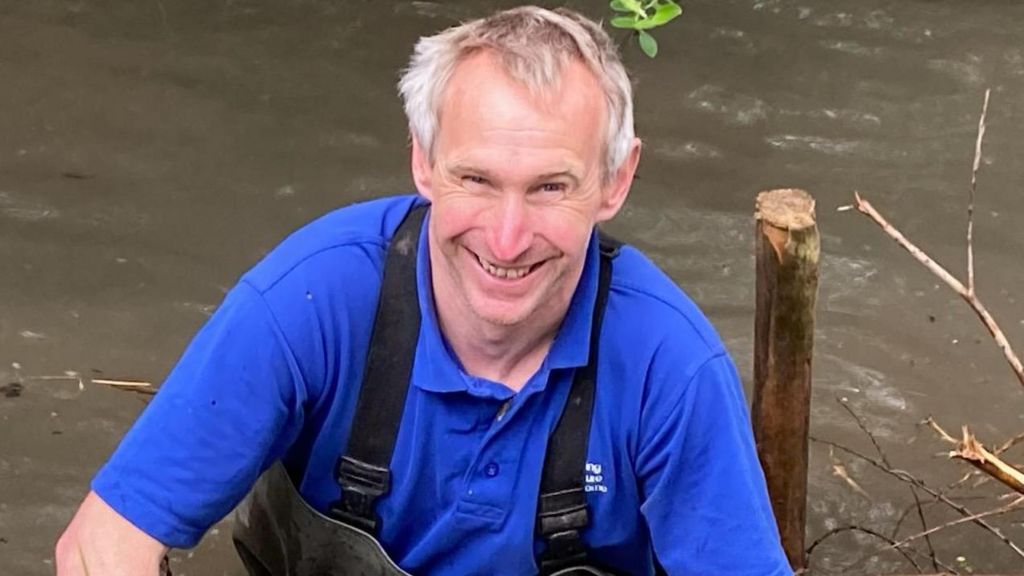Heavy rain provides boost for chalk stream wildlife

Iain Wheller and the RSPB said the wet winter made for healthier chalk streams
- Published
One of the wettest winters on record has been "great" for chalk rivers, the Royal Society for the Protection of Birds (RSPB) has said.
Eighty-five percent of the world's chalk streams and rivers are believed to be in England and the majority are situated in the East of England and South East.
Iain Wheller, a warden at RSPB Fowlmere in Cambridgeshire, said the deluge meant the riverbed was cleaner.
"It's great, the rain we've had. The water is really flowing - it picks up sediment," said Mr Wheller.
Rob Mungovan, from the Wild Trout Trust, said staff had been looking after water voles on the River Shep
Chalk streams are supplied with water from aquifers, which are underwater bodies of rock or sediment.
According to The Wildlife Trust, Bedfordshire, Cambridgeshire and Hertfordshire have been subjected to their wettest winter on record.
Scientists have warned of ever increasing rainfall because of global warming, as clouds will typically hold more moisture due to evaporation from the ground.
The clean, cold and naturally filtered waters play host to numerous rare and endangered species, such as water vole and brown trout.
During times of drought, they can run dry.
Rob Mungovan, from the Wild Trout Trust, said "we've been making cover for water voles" on the River Shep near Royston.
"The little crevices will provide vital habitat for the river's wildlife," he explained.
Mr Mungovan also warned that as population continued to grow, water companies would put "more pressure" on the system by extracting from aquifers".
A report published last year warned of water shortages of 800 million litres per day by 2050.
Follow East of England news on Facebook, external, Instagram, external and X, external. Got a story? Email eastofenglandnews@bbc.co.uk, external or WhatsApp us on 0800 169 1830
Related Topics
- Published25 April
- Published24 April
- Published13 December 2023